| Listing 1 - 7 of 7 |
Sort by
|
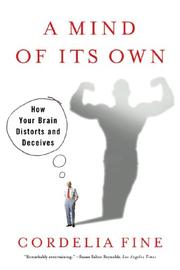
ISBN: 9780393331639 Year: 2008 Publisher: New York, NY W. W. Norton & Company, Inc.
Abstract | Keywords | Export | Availability | Bookmark

ISBN: 9780743284462 Year: 2008 Publisher: New York, NY Free Press
Abstract | Keywords | Export | Availability | Bookmark
 Loading...
Loading...Choose an application
- Reference Manager
- EndNote
- RefWorks (Direct export to RefWorks)
bigotry --- homophobia --- fanaticism --- Christian ideology --- fascism --- the Christian right --- totalitarianism --- nationalism --- intolerance
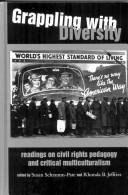
ISBN: 1435658795 9781435658790 0791473279 Year: 2008 Publisher: Albany State University of New York Press
Abstract | Keywords | Export | Availability | Bookmark
 Loading...
Loading...Choose an application
- Reference Manager
- EndNote
- RefWorks (Direct export to RefWorks)
Multicultural education --- Education --- Cultural pluralism --- Toleration --- Social Sciences --- Education, Special Topics --- Bigotry --- Intolerance --- Tolerance --- Virtues --- Discrimination --- Curricula
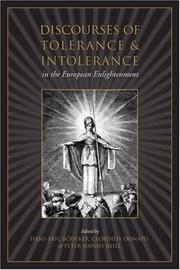
ISBN: 9780802091789 0802091784 1442687886 9781442687882 1442691360 Year: 2008 Publisher: Toronto
Abstract | Keywords | Export | Availability | Bookmark
 Loading...
Loading...Choose an application
- Reference Manager
- EndNote
- RefWorks (Direct export to RefWorks)
With reference to gender preference, racial and social profiling, immigration policies, and the adjudication of borderland cultures and hybrid identities, this collection offers an in-depth examination of Enlightenment society and its parallels in the contemporary world."--Pub. desc. Featuring an internationally renowned group of contributors, this volume looks at the concept of tolerance at the point where the individual, or group, converges or clashes with the state. Though it appears to provide grist for the mill of Enlightenment critics such as Adorno, Horkheimer, Foucault, and MacIntyre by confronting specific cases in which individual freedoms are forced to acquiesce to state control and authority in the guise of tolerance, the essays also offer a cautionary tale of critical restraint in the post-9/11 world. By reflecting on similar discrepancies in the interplay of discourses of tolerance and intolerance that inform our own lives, we recognize attempts to craft and apply theories and practices of toleration. "The idea of tolerance is one of the most enduring legacies of the Enlightenment. However, there is a surprising lack of scholarly works that attempt to analyse the influence of tolerance on the individual during this period. This collection assesses, for the first time, the positive and negative impact of discourses and theories of tolerance upon the lives of individuals in eighteenth-century Europe.
Toleration --- Enlightenment. --- Toleration. --- Discrimination --- Tolérance --- Siècle des lumières --- History --- Histoire --- Europe --- Social conditions --- Conditions sociales --- Bias --- Interpersonal relations --- Minorities --- Bigotry --- Intolerance --- Tolerance --- Virtues --- Aufklärung --- Eighteenth century --- Philosophy, Modern --- Rationalism
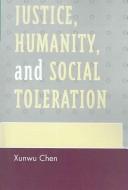
ISBN: 0739122444 1461633710 9781461633716 1299849814 9781299849815 Year: 2008 Publisher: Lanham Lexington Books
Abstract | Keywords | Export | Availability | Bookmark
 Loading...
Loading...Choose an application
- Reference Manager
- EndNote
- RefWorks (Direct export to RefWorks)
Justice, Humanity and Social Toleration makes a novel statement of justice as setting human affairs right in accordance with the principles of human rights, human goods and human bonds; it explores the timely embodiments of this family of justice in our age including social toleration, and democracy.
Justice. --- Humanity. --- Toleration. --- Interpersonal relations. --- Human relations --- Interpersonal relationships --- Personal relations --- Relations, Interpersonal --- Relationships, Interpersonal --- Social behavior --- Social psychology --- Object relations (Psychoanalysis) --- Bigotry --- Intolerance --- Tolerance --- Virtues --- Discrimination --- Ethics --- Injustice --- Conduct of life --- Law --- Common good --- Fairness
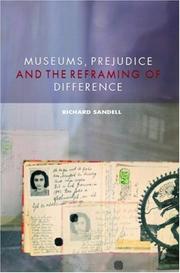
ISBN: 9780415367493 9780203020036 9781134209712 9781134209750 9781134209767 9780415367486 0415367484 0415367492 0203020030 Year: 2008 Publisher: London Routledge
Abstract | Keywords | Export | Availability | Bookmark
 Loading...
Loading...Choose an application
- Reference Manager
- EndNote
- RefWorks (Direct export to RefWorks)
Difference (Psychology) --- Museum exhibits --- Museums --- Museum visitors --- Prejudices --- Social justice --- Toleration --- #FARO gidsen_museale ontwikkelingen --- Bigotry --- Intolerance --- Tolerance --- Virtues --- Discrimination --- Equality --- Justice --- Bias (Psychology) --- Prejudgments --- Prejudice --- Prejudices and antipathies --- Attitude (Psychology) --- Emotions --- Visitors to museums --- Persons --- Museum attendance --- Display techniques --- Displays, Museum --- Museum displays --- Exhibitions --- Museum techniques --- Differential psychology --- Psychology, Differential --- Differentiation (Developmental psychology) --- Psychology --- Social aspects --- Attitudes --- Visitors --- Expositions --- Préjugés. --- Psychologie différentielle. --- Tolérance. --- Aspect social. --- Museology --- Philosophy and psychology of culture --- Sociology of cultural policy --- social functions --- museums [institutions] --- Préjugés --- Psychologie différentielle --- Tolérance --- Aspect social
Book
ISBN: 9789028949102 9789086870264 Year: 2008 Publisher: Kapellen Pelckmans
Abstract | Keywords | Export | Availability | Bookmark
 Loading...
Loading...Choose an application
- Reference Manager
- EndNote
- RefWorks (Direct export to RefWorks)
De Belgische filosoof Guido Vanheeswijck bespreekt in dit boek de historisch-filosofische oorsprong van een actief pluralistische houding. In zijn boek nuanceert hij de gangbare opvatting die de oorsprong van de moderne westerse tijd in de 17e eeuw dateert. Hij noemt deze de tweede renaissance, de rationele en wetenschappelijk moderne. Zij is de basis voor het passieve pluralisme. In navolging van Burckhardt, Kundera en Toulmin situeert hij een eeuw daarvoor een eerste, literaire en humanistische renaissance. Het is de tijd waarin de Lof der Zotheid van Erasmus en Utopia van Thomas More ontstonden. Deze humanisten leerden elkaar in Antwerpen, door toedoen van Pieter Gillis, kennen. Onder deze filosofen werd een open discussie over geloofszaken gepropageerd. Door het bloedvergieten tijdens de godsdienstoorlogen ontstond er echter een passieve tolerantie waarbij de 'laatste vragen' geleidelijk uit het publieke discours verdwenen. In een democratie behoort er echter ook dialoog te zijn over fundamentele waarden en overtuigingen. Hiervoor kan inspiratie geput worden uit de eerste renaissance van humanisten als Erasmus en More.
Philosophy and psychology of culture --- Religious studies --- Academic collection --- 130.2 --- 316.647.5 --- 172.3 --- BPB1101 --- Culture --- Philosophie --- Filosofie van de cultuur. Cultuurfilosofie. Cultuursystemen. Kultuurfilosofie --- Intolerantie. Tolerantie. Verdraagzaamheid --- Religie en staat. Gewetensvrijheid. Intolerantie. Tolerantie --- Cultuur --- Filosofie --- 172.3 Religie en staat. Gewetensvrijheid. Intolerantie. Tolerantie --- 316.647.5 Intolerantie. Tolerantie. Verdraagzaamheid --- 130.2 Filosofie van de cultuur. Cultuurfilosofie. Cultuursystemen. Kultuurfilosofie --- Pluralism --- Religious pluralism --- Religious tolerance --- Toleration --- Bigotry --- Intolerance --- Tolerance --- Virtues --- Discrimination --- Tolerance, Religious --- Pluralism (Religion) --- Religion --- Religions --- Monadology --- Monism --- Philosophy --- Reality --- History --- Erasmus, Desiderius --- Influence --- More, Thomas --- filosofija --- filosofie --- filozofija --- filosofia --- filozofie --- philosophy --- filosofía --- филозофија --- φιλοσοφία --- filosoofia --- filozofi --- filozofia --- filozófia --- философия --- filosofi --- gnozeologie --- humanisme --- dialektika --- ontologie --- гносеологија --- epistemologie --- дијалектика --- епистемологија --- umanesimo --- bölcselet --- онтологија --- noetika --- kultur --- kulttuuri --- culture --- cultură --- cultuur --- kultura --- πολιτιστικός τομέας --- kultúra --- kultūra --- cultura --- Kultur --- kultuur --- култура --- livello culturale --- vita culturale --- културен живот --- erudizione --- fealsúnacht --- cultúr
| Listing 1 - 7 of 7 |
Sort by
|

 Search
Search Feedback
Feedback About UniCat
About UniCat  Help
Help News
News